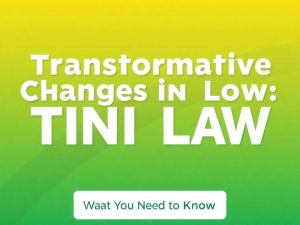The term “utanmaz türklere” evokes a spectrum of meanings and interpretations within Turkish culture and society. Directly translating to “unashamed Turks,” the phrase has both historical roots and modern implications that reflect ongoing social, political, and cultural dynamics. This article aims to dissect the various layers of this term, delving into its historical context, contemporary significance, and the pervasive social and political narratives associated with it.
Historical Context
Origins of the Term
The foundation of the term “utanmaz” can be traced back to its etymological roots which imply a lack of shame or embarrassment. In Turkish, the word “utanmak” means “to be ashamed,” and when negated, it highlights a defiance or outright rejection of societal expectations. Historically, “utanmaz türklere” has been used in various forms of Turkish literature and media to describe individuals or groups perceived as brazen in their actions or behaviors, often leading to moral or ethical sentiments.
Key figures or events in Turkis history have contributed to the recognition and usage of this term. For instance, individuals and movements that challenged normative behaviors have often been labeled as “utanmaz”, creating a dichotomy of traditional versus progressive beliefs within Turkish society.
Evolution Over Time
Over the centuries, the connotation of “utanmaz türklere” has transformed significantly. Originally perceived negatively, the term has evolved alongside Turkey’s cultural shifts. In the late 20th and early 21st centuries, as Turkish society experienced a wave of modernization and Western influence, the interpretation of what it means to be “unashamed” or “bold” has diversified.
With the influx of globalization and changing cultural values, the role of language has played a critical part in reshaping societal attitudes towards such terms. While some view the term as derogatory, a growing number recognize it as a badge of pride for those who resist conforming to outdated norms.
Social and Cultural Implications
Contemporary Usage
In today’s discourse, “utanmaz türklere” is frequently invoked in social media, popular culture, and everyday conversation. It serves as a rallying cry for activists promoting LGBTQ+ rights, women’s rights, and other social justice movements within Turkey. As societal acceptance grows for various minority groups, the public perception of “utmaz türklere” has begun to shift from stigma to recognition of courage and integrity.
Social media platforms showcase this evolution, with hashtags and memes associating the term with pride and defiance against traditional constraints. This recontextualization signifies an emerging sense of identity among younger generations, who are unafraid to embrace the label as they challenge the status quo.
Stereotypes and Misconceptions
Despite its evolving meaning, stereotypes surrounding “utanmaz türklere” persist. Common misconceptions represent these individuals as morally deficient or disrespectful to societal norms. Such portrayals can lead to discrimination and social ostracism for those who embody or align themselves with the term.
Examining case studies reveals the impact of these stereotypes on Turkish society. For instance, many individuals identifying with minority rights movements report facing backlash or hostility, illustrating how misconceptions can perpetuate division rather than encourage understanding.
Political Dimensions
Representation in Media and Politics
Political commentary often portrays “utanmaz türklere” through a critical lens, especially in opposition to nationalistic rhetoric. Political figures or parties that advocate for reform, equality, and modernization are sometimes labeled as “unashamed,” reflecting a perceived betrayal of traditional Turkish values. This narrative is reinforced by media outlets that either support or oppose various social movements.
Analyzing media narratives surrounding the term highlights the divisive nature of political discussions in Turkey. The portrayal of “utanmaz türklere” can vary greatly, with sensationalism leading to polarized opinions in the public sphere.
National Identity and Pride
The relationship between national identity and the view of “utanmaz türklere” is complex. Many individuals grapple with their identities as both proud Turks and advocates for social change.
Proposals for reform often include initiatives aimed at educating the populace on the significance of embracing all identities within Turkey. Comprehensive education programs focusing on diversity and inclusion can play a pivotal role in reshaping perceptions and fostering a more holistic understanding of national pride.
Responses and Reactions
Counterarguments
There are significant voices within Turkey that challenge the negative connotation of “utanmaz türklere”. Individuals who proudly identify with the term argue that it represents a celebration of authenticity and self-acceptance. In interviews and public statements, these advocates emphasize the importance of rejecting shame associated with identity, defining the term as one that embodies resilience and courage.
Some argue that labeling someone as “utanmaz” is not only an attempt to stifle their voice but also to deny their dignity. These counterarguments are essential in the ongoing dialogue around the implications of societal labels.
Movements and Advocacy
Multiple organizations and social movements actively work towards reevaluating the term “utanmaz türklere” in a positive light. Campaigns promoting awareness and understanding encourage citizens to rethink their preconceived notions regarding the term.
Successful initiatives have included community outreach programs aimed at fostering dialogue between traditionalists and progressives. Such efforts are crucial in combating entrenched stereotypes and building bridges between various segments of society.
Conclusion
In summary, the term “utanmaz türklere” reflects a rich tapestry of historical and contemporary significance within Turkish society. As it evolves in meaning, it embodies broader societal discussions on identity, acceptance, and cultural change.
Table Summary of Key Points
| Aspect | Details |
|---|---|
| Definition | Literally “unashamed Turks,” referring to those who defy societal expectations. |
| Historical Context | Originates from Turkish literature and media, evolving through cultural shifts. |
| Contemporary Usage | Widespread in social media, associated with activism and social justice. |
| Stereotypes | Commonly misconceived as morally deficient but viewed as brave by supporters. |
| Political Dimensions | Varied representations in media and politics, often challenged by advocacy groups. |
| Future Directions | Education and awareness campaigns are crucial for reshaping perceptions. |
FAQs
1. What does “utanmaz türklere” mean?
The term “utanmaz türklere” means “unashamed Turks,” often used to describe individuals who defy societal norms.
2. How has the meaning of “utanmaz türklere” changed over time?
The meaning has evolved from a derogatory term to one that can signify courage and authenticity in modern discourse.
3. What stereotypes exist around “utanmaz türklere”?
Common stereotypes portray them as morally deficient or disrespectful to Turkish values, but many view them as pioneers of change.
4. How is “utanmaz türklere” reflected in social media?
It appears in hashtags and memes, frequently associated with social justice movements and pride in diversity.
5. What role does education play in reshaping perceptions of “utanmaz türklere”?
Education can help foster understanding and acceptance, combating stereotypes and promoting inclusivity.
6. Are there movements advocating for “utanmaz türklere” in Turkey?
Yes, several organizations and campaigns are working to positively redefine the term and promote social justice.
7. How does the media portray “utanmaz türklere”?
The media portrayal can vary widely, often reflecting political biases and societal tensions regarding changing norms.
8. What counterarguments exist to the negative perceptions of “utanmaz türklere”?
Many individuals argue that the term represents authenticity and pride in one’s identity, challenging societal pressure to conform.
9. How can we move towards a more inclusive understanding of “utanmaz türklere”?
Encouraging open dialogue and education about diversity can promote a more inclusive and accepting societal narrative.
10. What impact do stereotypes have on individuals identified as “utanmaz türklere”?
Stereotypes can lead to discrimination and social ostracism, undermining the dignity and rights of those who embody or align with the term.




